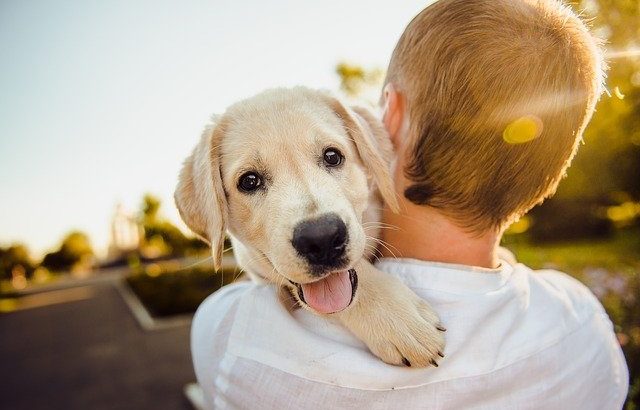What Is a Companion Animal Veterinarian?
When researching some of the different types of veterinarian professions, you may come across companion animal veterinarians. They account for the largest portion of the veterinary employment sector. There are more companion animal veterinarians practicing in the United States than all other licensed veterinarian professions. What is a companion animal veterinarian exactly, and how does this otherwise common profession differ from other veterinary professions?
The Basics of Companion Animal Veterinarians
Also known as a small animal veterinarian, a companion animal veterinarian is a licensed veterinarian who provides healthcare services to a wide range of common and small pets. They operate in traditional clinics where they diagnose, treat and prevent injury and illness in their clients’ small pets. If a pet owner discovers his or her pet is ill, the owner may seek the services of a companion animal veterinarian. A companion animal veterinarian is simply a trained veterinary professional who provides services for small pets.
Millions of Americans own pets. According to a survey conducted by the American Pet Products Association (APPA), over two in three households in the United States have at least one pet. Small pets are considered companion animals, and like animals, they often require professional medical services. Companion animal veterinarians are the veterinary professionals who provide these essential medical services to small pets, which are colloquially known as companion animals.
Examples of companion animals include the following:
- Dogs
- Cats
- Turtles
- Hamsters
- Guinea pigs
- Rabbits
- Reptiles
- Fish
- Birds
How Companion Animal Veterinarians Differ From Other Veterinarians
There are other types of veterinarians, many of whom specialize in a particular field of veterinary medicine. The American Veterinary Medical Association (AVMA) recognizes over a dozen veterinary specialties. There are veterinary cardiologists, for instance, who specialize in animal cardiology. Whether big or small, animals can develop heart disease just like their human counterparts. Veterinary cardiologists are veterinary professionals who undergo specialized education and training to treat heart disease, as well as other heart-related ailments, in animals.
Another type of veterinarian is an immunologist. Veterinary immunologists, as you may have guessed, specialized in the immune system of animals. All animals have an immune system. It’s a complex system of cells, organs and chemicals that’s designed to protect against infection. If an animal suffers from an immune system disorder, it will be at a greater risk of infection — and infections can often prove life-threatening for animals with a compromised immune system. Veterinary immunologists are specialists who know how to diagnose and treat immune system disorders in animals.
Veterinary cardiologists and immunologists are just two of many veterinary specialties recognized by the AVMA. With that said, the AVMA doesn’t classify companion animal veterinarians as a specialty. Companion animal veterinarians encompass all non-specialized but licensed veterinarians who provide medical services for small pets.

Duties and Responsibilities of Companion Animal Veterinarians
Companion animal veterinarians share many of the same duties and responsibilities of other veterinarians. Their primary goal is to diagnose, treat and prevent physical injuries, as well as diseases and other adverse medical conditions, in small pets.
During their day-to-day work, companion animal veterinarians perform a myriad of tasks. If a client’s small pet is injured, the companion animal veterinarian may conduct an X-ray to look for broken bones. If a client’s small pet is sick, on the other hand, the companion animal veterinarian may conduct a series of toxicology tests. Companion animal veterinarians are even capable of performing surgery. They have the education and training needed to perform basic surgical procedures on small pets.
Many companion animal veterinarians work with paravetinary professionals. A paravetinary professional is an assistant who helps a veterinarian. There are veterinary assistants, veterinary technicians and veterinary technologists, all of whom are considered paravetinary professionals.
How to Become a Companion Animal Veterinarian
While it’s not an AVMA-recognized specialty, companion animal veterinarians are still licensed veterinarians. Therefore, you’ll have to earn a Doctorate of Veterinary Medicine (DVM) to become a companion animal veterinarian. A DVM is a four-year college program that focuses on veterinary medicine. All licensed veterinarians must earn a DVM — and companion animal veterinarians are no exception.
Before you can enroll in a DVM program, though, you’ll have to meet the respective school’s prerequisites. Most colleges won’t accept just anyone into their DVM program. They have certain requirements to determine eligibility for enrollment. At a minimum, most AVMA-accredited colleges require a bachelor’s degree. You’ll have to earn a bachelor’s degree before you can enroll in a college’s DVM program.
Once you’ve completed the DVM program, you’ll be on your way to becoming a companion animal veterinarian. The next step is to obtain your license. There’s no special license for companion animal veterinarians. Rather, they require the same license as other, non-specialized veterinary professions. A veterinary license will allow you to practice as a companion animal veterinarian in the state from which you acquire it.

